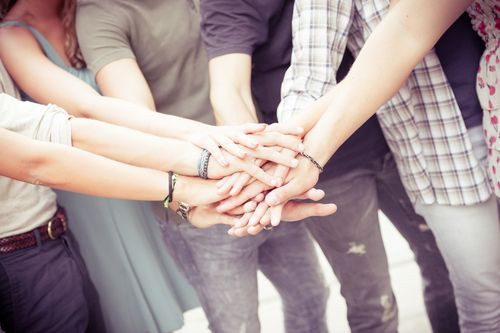Common Knowledge Equals Cooperation? The Influence Another Person's Decision Has On Your Own

If you know the reasons behind someone else's decision, you're more likely to cooperate, according to a new study published in the Journal of Personality and Social Psychology.
Cooperation is typically talked about in terms of altruism (expressing concern for the well-being of others) and reciprocity (an equally positive exchange). Which is to say people cooperate when there is something, anything, in it for them. So researchers worked to see how they could change this by talking about cooperation in terms of mutualism (simultaneous benefits) and coordination (a way to ensure said benefits).
They recruited over 1,000 participants to decide between a few scenarios focused around working for a profit alone or working for a slightly higher profit with someone else. Scenario information was relayed either commonly or privately, and the catch to working with someone else is that participants would only receive the profit if their partner made the same decision.
The results? Participants with common knowledge cooperated more with their participants to make a profit, which supports the researchers' hypothesis that common knowledge is a distinct cognitive category that licenses people to coordinate with others for mutual gain.
Gender differences may also play a role in how cooperative a person is, too. A study from the University of Arizona found men match their partner's emotion during mutual cooperation (he's happy if his partner is happy), while women do not.
"If you think about a couple that is trying to cooperate with one another, the man might go along and say, 'oh sure, honey, this is great, are we almost done?' whereas the women might say, 'I'm so glad that you're happy, but I just want to talk about this one other thing because I think we're really getting at a resolution,'" Dr. Ashley Randall, lead study author, said in a press release.
Cooperation makes for a succesful relationship, personal or not. Moving away from personal gain toward mutual gain will be beneficial for all involved.
Source: Thomas K, DeScioli P, Haque O, Pinker S. The Psychology of Coordination and Common Knowledge. Journal of Personality and Social Psychology. 2014.



























